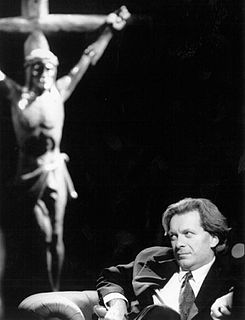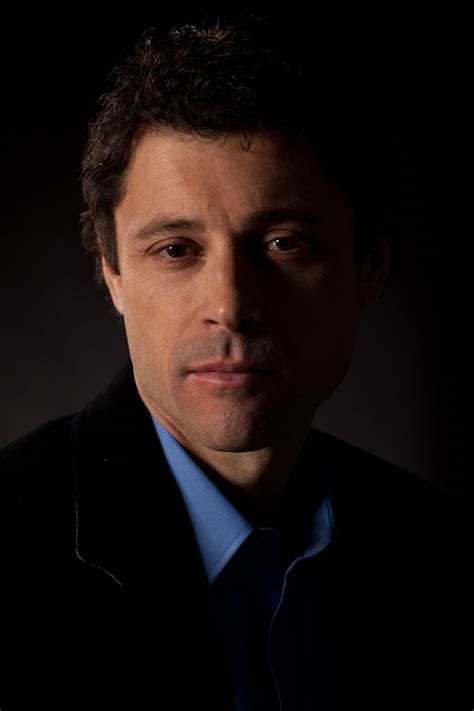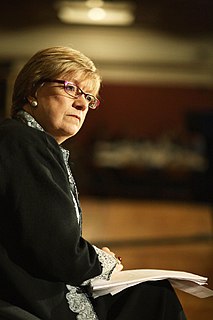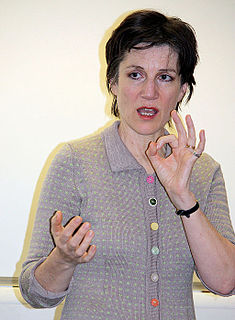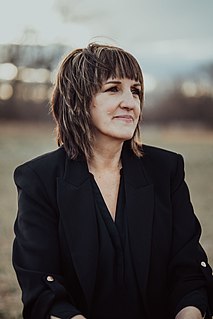A Quote by Floyd Skloot
At 93, so deep in dementia that she didn't remember any details of her life, my mother somehow still knew songs.
Related Quotes
Hats change everything. September knew this with all her being, deep in the place where she knew her own name, and that her mother would still love her even though she hadn’t waved goodbye. For one day her father had put on a hat with golden things on it and suddenly he hadn’t been her father anymore, he had been a soldier, and he had left. Hats have power. Hats can change you into someone else.
That came from my mother. She was the biggest influence on my life. I remember once refusing to get on a bus with her because she was wearing a mink, and I thought we should be taking a taxi. She just said, 'Who cares what people think?' and I remember sitting on that bus, being utterly embarrassed, but knowing somehow that she was totally correct.
You don't need to be seeing someone to be in love with her. You can have lost touch with her, she can have hurt you, even inexplicably. If you ever felt that you really knew her and that it was what you knew that you loved, and if you remember what it was you once knew, why is it so crazy to retain that love still?
My Auntie CeCe - I can kind of joke and say all I need to do is pray. But that's literally what she does... She lives what she sings. I've learned a lot about her in that way, so in bringing her to the stage, I knew what sort of demeanor she needed to have. Her songs are very reflective of who she is in real life.
He was always part of her thoughts, and now that he was real, he was inescapably part of her life, but it was as she had told her mother: saying he was part of her or that they were more than friends sounded like love, but it seemed like loss as well. All the words she knew to describe what he was to her were from love stories and love songs, but those were not words anyone truly meant.
...the girl longed for a love that could not be ended by death. From the time she was young, she knew that her true love was there, somewhere, living a life that would one day intersect her own. Knowing this made every day full of sweet possibility. Knowing that her true love lived and breathed and went about his day under her same sun made her fears vanish, her sorrows small, and her hopes high. Though she did not yet know his face, the color of his eyes, still she knew him better than anyone else knew him, knew his hopes and dreams, what made him laugh and cry.
A light was on in the kitchen. His mother sat at the kitchen table, as still as a statue. Her hands were clasped together, and she stared fixatedly at a small stain on the tablecloth. Gregor remembered seeing her that way so many nights after his dad had disappeared. He didn't know what to say. He didn't want to scare her or shock her or ever give her any more pain. So, he stepped into the light of the kitchen and said the one thing he knew she wanted to hear most in the world. "Hey, Mom. We're home.
The good enough mother, owing to her deep empathy with her infant, reflects in her face his feelings; this is why he sees himselfin her face as if in a mirror and finds himself as he sees himself in her. The not good enough mother fails to reflect the infant's feelings in her face because she is too preoccupied with her own concerns, such as her worries over whether she is doing right by her child, her anxiety that she might fail him.


